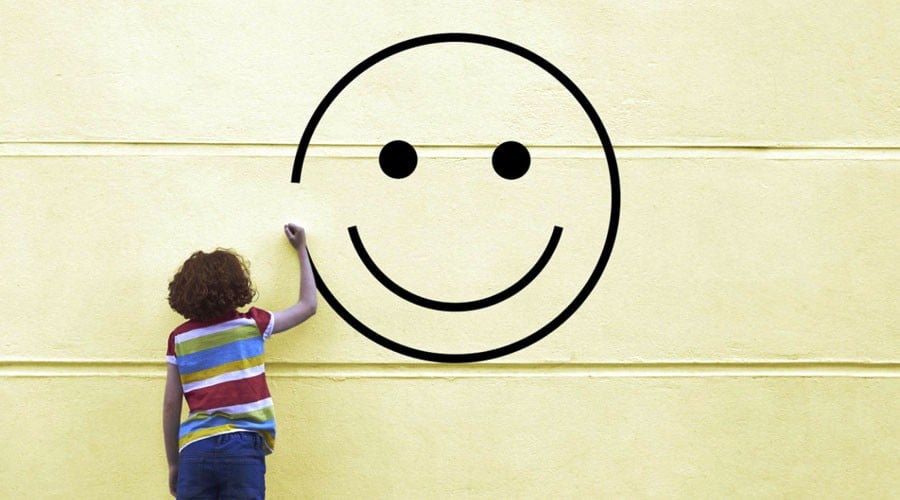
A self-sustaining, self-nurturing and self-renewing spiritual resource that is not hostage to the highs and lows of fortune, happiness is our ability to relish the salt and spice, the bitter and sweet of life alike

Happiness can be defined as freedom from unhappiness, continued sadness, remorse, or regret. It also means freedom from fear and anxiety, as no happiness can exist in the company of these. It’s a quiet joy that radiates from our soul, abides and energises our hearts, and expresses itself through every limb of our body.
Happiness is distinctly something different from ‘delight’ and ‘pleasure’ that are kinds of ‘excitement’ and occur as and when an impulse is gratified. Excitement is, by its very nature, a fleeting or terminal emotion that runs its lifespan of a few minutes or hours before it disappears. And it is also true that sometimes excitement does elevate the mood and mind into the spheres of happiness, yet delectable excitement itself is not synonymous with happiness. Distinguishably, happiness is more of a state of mind or soul. It is not like the daily weather forecast or a passing season; it is rather the general climate, the informing ambience in which a human soul ‘lives, moves about and has its being.’
Similarly, the origins of happiness are also quite different from those of excited pleasure or delight. Excitement depends usually on an external stimulus. Gratification of the instinctive, intellectual or sensuous needs leads to pleasure and delight such as listening to good music, eating delicious food, enjoying the company of elegant people, sipping in the beauty of nature or art or reading a treatise on Mathematics or the Theory of Relativity. These things do please our mind or body that take delight in these acts of pleasure. Hence, pleasure is our body’s response to the external stimulus of (pleasing or pleasurable) gratification of an impulse, and delight is our body’s response to the stimulus of pleasure. If someone’s company pleases me, I am usually ‘delighted’ to see him or her.
On the other hand, happiness is a response not dictated by external stimuli; it is rather the attitude, the position, or the choice of an individual soul when faced with the totality of pain and pleasure in life.
Life brings us new stimuli on a daily basis: the success or failure, the profit or loss, the glory or humiliation, the loss of a dear friend or a child or a parent; the newfound love; a new job or a sack. All these excitements are like little tempests that rock the boat of our emotional life. Some of these excitements leave us pleased and happy, while others make us feel sad. Also, happiness is our spiritual response to the emotional turbulence caused by the events that affect us.
Happiness, therefore, is our ability to rise above the vicissitudes of life’s emotional upheavals. It is our ability to see beyond the immediate and present pain or suffering. It is our ability to transcend and transmute the day-to-day emotional turbulence into serenity. Happiness is our choice of not leaving our mind and soul at the mercy of the sways of excitement. Happiness cannot eliminate sorrow, suffering, pain or death from the scheme of things, but it can help keep fear, anxiety, sadness, hopelessness, pessimism and other fathers of unhappiness at bay.
As happiness consists in ‘freedom’ from certain other states of mind, it involves a struggle to steer clear of them and can be developed into a habit through repeated action. While on the other hand, if we allow our soul to descend into dumps each time we encounter pain or suffering, we would develop the ‘habit’ of unhappiness through repeated action. Therefore, we can create happiness by maintaining a certain safe distance from the negative effects of pain and suffering. We can create happiness only if we do not link it to the outcomes of our actions.
Most of the time, the outcomes of our actions are not as expected: we do not always achieve what we aim at, we do not always get what we want, and we do not always reach what we set out for. Simply, we cannot control consequences; we cannot dictate results; we cannot enslave the objective reality to suit our whims. Therefore, it is fatal to link happiness to any form of desired results. Happiness must be a self-sustaining, self-nurturing and self-renewing spiritual resource that is not a hostage to the highs and lows of fortune. It is our ability to relish the salt and spice, the bitter and sweet of life alike.